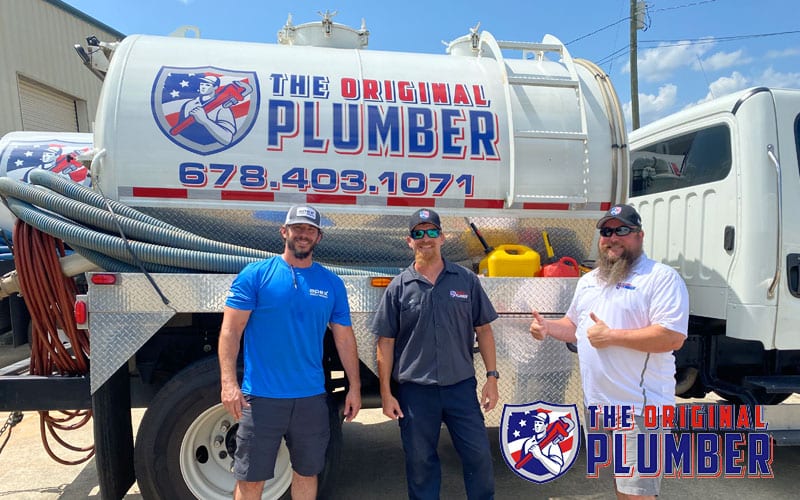Your property’s septic tank is one of the most crucial components of your whole plumbing structure. Septic tanks securely process and manage all the wastewater from your home.
When your septic tank isn’t functioning, you should immediately replace or repair it. When your septic tank isn’t functioning as it should, your entire plumbing system gets disrupted, and you may end up putting you and your family in danger and damaging your property or backyard.
Unluckily, septic tanks don’t have a long lifespan. High chances are, in a few years, you will be replacing your existing septic with a new one. Buying a new septic is a significant choice. This is because the septic tank you choose will serve your plumbing system in the coming years. The most crucial decision you will have to make is whether to go for concrete septic tanks or plastic septic tanks.
Plastic and concrete are the two most popular materials for making septic tanks. Knowing their pros and cons will help you select the one that best suits your home and fits your budget. Let’s look at the advantages and disadvantages of each of them.
Plastic Septic Tanks
Advantages
- Plastic Septic tanks are more affordable than concrete septic tanks as they have a lower purchase price.
- Plastic Septic tanks are easy to install since they are lightweight; they need few individuals to install and require less time and equipment. Thus lower installation expenses.
- Poly septic tanks are easy to transport and more adaptable. This means they can be placed in various places.
- Plastic septic tanks are watertight and are immune to water-based corrosion. They are also rust-resistant.
- Plastic tanks are less prone to cracking since plastic is flexible, and thus a plastic septic tank does not crack as much as a cement septic tank.
- Plastic septic tanks are more hygienic than cement tanks.
- Plastic tanks come ready to be set up and installed.
Disadvantages
- Plastic tanks are not as sturdy as cement and thus are easily crushed by the weight. They can be crushed by the weight of heavy soil or vehicles driving over the places where they are buried.
- Plastic tanks are also sensitive to the environment, meaning they can rupture or break due to changes to soil vibrations and conditions. On the other hand, cement septic tanks are far less sensitive to environmental changes.
- Plastic tanks are vulnerable to damage as they break or wrap more often than cement septic tanks.
- Plastic tanks require more maintenance than cement septic tanks.
- Poly septic tanks generally have a lower lifespan than concrete tanks.
- Plastic tanks usually have low effluent levels and will “float” when the water level is higher than usual. This “floating” can destroy your plumbing system and the septic tank itself.
- Plastic septic tanks are not approved for use in all states.
You might be interested in reading: Should you buy a house with a septic tank
Concrete Septic Tanks
Advantages
- Cement Septic tanks are very durable than plastic tanks and, if kept properly, can have extended longevity. With regular draining and proper maintenance, a cement septic tank can last for up to 40 years.
- Cement septic tanks are resistant to environmental changes such as tree roots or changing soil conditions.
- Concrete tanks suffer no adverse effects from the weight above them.
- Cement septic tanks are very resilient and, thus, require minimal maintenance compared to plastic tanks.
- Concrete tanks are extremely heavy and have high effluent levels; therefore, they are immune to “floating.”
- Cement tanks are approved for use in all states in the United States.
Disadvantages
- Concrete septic tanks are more costly to buy and install than plastic septic tanks mainly because of their weight.
- Concrete tanks are more difficult to transport and install because they are unwieldy and more massive than plastic tanks. Therefore, the cement septic tank installation uses heavy equipment and takes a long time.
- Cement tanks are also more disruptive to repair and install. When your cement tank is damaged, it isn’t easy to fix it efficiently compared to plastic tanks.
- Cement septic tanks are more susceptible to corrosion than plastic tanks because they crack or corrode as they age, particularly if they are not properly maintained.
Selecting a Septic Tank
Cement is usually the default option for many homeowners in Atlanta, GA, because it’s allowed in the 50 states of the U.S. For a long time, cement has been the go-to building material because it is resistant to damage by shifting or heavyweight.
Nonetheless, when it comes to cost, plastic septic tanks are more affordable than concrete tanks. If you live in a remote area, you should go for a plastic tank since cement tanks can’t challenge its ease of installation and transport.
Your soil’s quality will also play a huge role in deciding the type of septic tank you purchase. If your soil has a high degree of acidity, it will destroy a cement septic tank. Therefore, if your soil has high acidity, you should purchase a plastic septic tank.
Although there are several factors to put into consideration when choosing between a plastic and cement septic tank, consider your location and situation and go with the option that feels right for your home. We are professionals in both concrete and plastic septic tanks, and we will help you choose the right option for your home. Contact The Original Plumber & Septic for all your septic tank systems needs.




